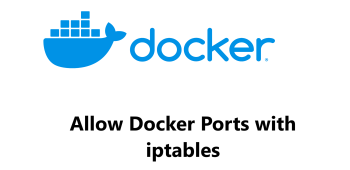Any operating system gets congested overtime as applications and programs are installed and removed. This system overload can have a negative impact on system performance. Cleaning up your system to free up disk space is a necessary task. There are many tools that help us easily clean up system junk files.
Here at Ibmi Media, we shall look into a few graphical tools that can be used to clean up Ubuntu and Linux Mint systems.
How to Remove unnecessary packages from Ubuntu and Linux Mint System ?
Whenever some applications or even system updates are installed, these are downloaded by the package manager and then stored in the cache before installing them, in case they need to be installed again.
If the installation was successful, Ubuntu does not delete these packages and they remain cached.
So cleaning these packages is recommended to save disk space, improve your PC performance, and speed up boot times.
These packages are stored in the / var / cache / apt / archives folder.
To remove all this garbage from the system, just run the following command from the terminal:
$ sudo apt-get -s cleanThis command will clean up the following system directories:
- / var / cache / apt / archives / partial / *
- / var / lib / apt / lists / partial / *
- /var/cache/apt/pkgcache.bin
- /var/cache/apt/srcpkgcache.bin
Best tools to Free Up Space on Ubuntu and Linux Mint include:
1. Stacer
Stacer is a GUI application built to optimize Linux systems. It provides a system cleanser that can be used to monitor and free up system resources. The System cleaner section allows you to search for and remove potentially unwanted files of four different types:
Apt Cache: downloaded package files are cached every time you use the apt command to install packages. This is useful for reinstalling those packages in the same version without having to download them again. However, to free up storage space, you may choose to erase them.
Crash Reports: These are generated whenever an application crashes, and sent to the application’s developer for troubleshooting purposes. Stacer can remove such files.
System Logs: These are log files from system processes that can be deleted to free up space.
App Cache: Cache files are stored by applications to increase performance. From here, you may delete cache files for a variety of apps.
To install Stacer on Ubuntu, run the below command:
$ sudo apt install stacer2. BleachBit
Bleach Bit is an open-source multi platform system optimizing tool. It can be used to easily reclaim disk space when your Ubuntu PC is getting full. With BleachBit, you can clear your cache, delete cookies, clear your Internet history, shred temporary files, delete logs, and get rid of stuff you didn't even know existed.
To install BleachBit on Ubuntu/Linux Mint, run:
$ sudo apt install bleachbit3. Ubuntu Cleaner
Ubuntu Cleaner is an open-source tool that can be used to free up space on your Ubuntu system. You can use it to clear unused packages, Apps Cache, system Cache, Browser cache, Apt-Cache and Thumbnail Cache. This frees up disk space on Ubuntu.
To install Ubuntu Cleaner, first add its official then install it as follows:
$ sudo apt install software-properties-common
$ sudo add-apt-repository ppa:gerardpuig/ppa
$ sudo apt update
$ sudo apt install ubuntu-cleaner4. Sweeper
Sweeper is a system cleaning tool available in the KDE environment. It easily cleans up the hard disk by removing recent applications, run command history and thumbnail cache. It also clears up web activity. Sweeper is available in the official ubuntu repository. Install it with the command:
$ sudo apt install sweeper5. rmLint
rmlint is a simple and easy-to-use free open source tool for locating and cleaning various types of lint on a Linux filesystem.
It helps you clean up your Linux system by finding and deleting duplicate files, empty directories, unneeded temporary files, undesired and problematic cruft in files and file names, and faulty symlinks. This helps you to reclaim disk space on Ubuntu/Mint Linux.
To install rmLint run:
$ sudo apt install rmlintTo launch the rmLint GUI, execute the command:
$ rmlint --gui[Need help in fixing Linux System issues ? We can help you. ]
Conclusion
This article covers the best GUI Tools to Free Up Space on Ubuntu and Linux Mint . In fact, you can use these tools to regularly keep your Ubuntu / Linux Mint system free of junk files.
How to Remove old kernels from the Ubuntu / Linux Mint system ?
1. As we should know, the Linux Kernel is the heart of the system, but it is also known that it is updated every so often, so they are released new versions which are installed in the system displacing the old versions which remain stored without being eliminated.
For this we must type the following command:
$ sudo dpkg 'linux-image *' --list2. Next, they must identify their oldest kernels and execute the following command to remove the previous versions.
Just replace xxxxx with the version of Linux you want to delete:
$ sudo apt-get remove linux-image-xxxxx3. As an alternative, an easier way to clean up these old kernels is to use 'autoremove':
$ sudo apt-get autoremove --purge
This article covers the best GUI Tools to Free Up Space on Ubuntu and Linux Mint . In fact, you can use these tools to regularly keep your Ubuntu / Linux Mint system free of junk files.
How to Remove old kernels from the Ubuntu / Linux Mint system ?
1. As we should know, the Linux Kernel is the heart of the system, but it is also known that it is updated every so often, so they are released new versions which are installed in the system displacing the old versions which remain stored without being eliminated.
For this we must type the following command:
$ sudo dpkg 'linux-image *' --list2. Next, they must identify their oldest kernels and execute the following command to remove the previous versions.
Just replace xxxxx with the version of Linux you want to delete:
$ sudo apt-get remove linux-image-xxxxx3. As an alternative, an easier way to clean up these old kernels is to use 'autoremove':
$ sudo apt-get autoremove --purge












